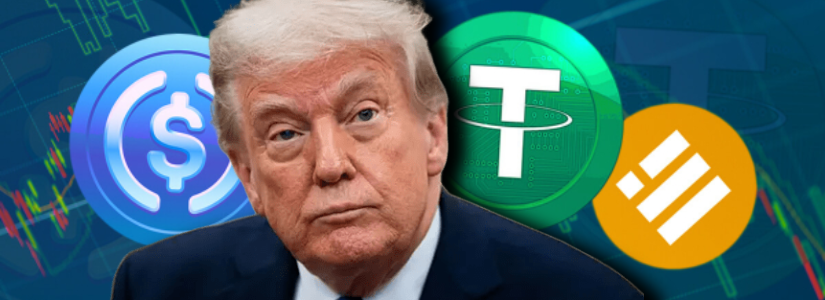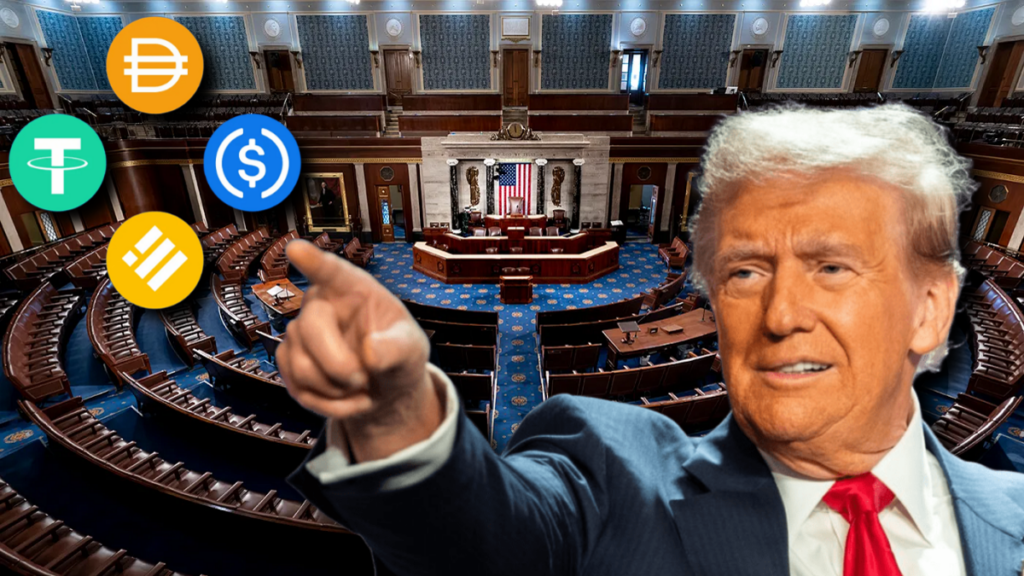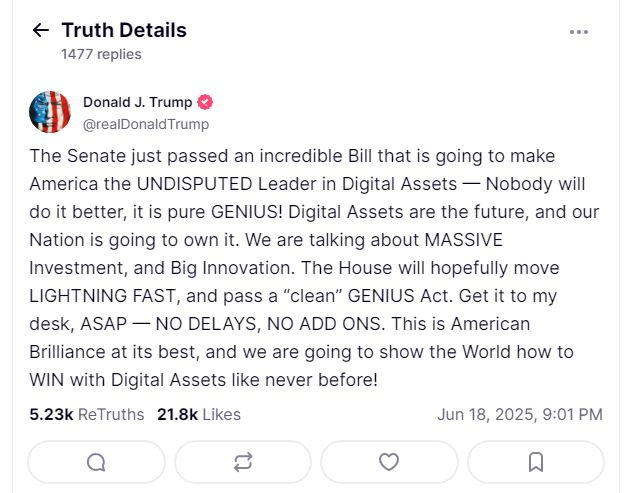TL;DR
- President Donald Trump endorsed the GENIUS Act, calling it a crucial step for US leadership in digital assets.
- The bill, approved by the Senate, would create the country’s first federal regulatory framework for dollar-backed stablecoins.
- Trump is pressuring the House for a quick, unmodified vote, warning against delays or added provisions that could jeopardize the bill’s momentum and bipartisan support.
President Donald Trump has publicly thrown his support behind the recently passed Senate stablecoin bill known as the GENIUS Act. The legislation aims to position the United States at the forefront of digital asset regulation by establishing a clear legal foundation for dollar-pegged stablecoins.
Trump hailed the bill as a breakthrough, writing on Truth Social,
“This is American brilliance at its best. No delays, no add-ons. Just get it to my desk ASAP.”
He stressed that the legislation would transform the US into the “undisputed leader” in the digital economy and said digital assets are a vital part of the country’s future.
Stablecoins Set To Redefine Financial Transactions
The GENIUS Act introduces rules designed to ensure consumer protection, transparency, and operational standards for stablecoin issuers, while also allowing regulated financial institutions to enter the space with more legal certainty. Unlike other proposals that tie stablecoin development to broader crypto regulation, this bill focuses solely on creating a foundation for dollar-backed digital tokens.
Supporters of the legislation, including Senator Bill Hagerty of Tennessee, believe that fast settlement times and programmable money will give American businesses and individuals an edge in global finance. Hagerty emphasized the importance of passing a standalone version of the bill before July 4, avoiding the delays of attaching it to a larger package that could lose bipartisan backing in the Senate.
House Republicans Caught Between Speed And Scope
Despite general support for stablecoin regulation within the GOP, some House Republicans are considering folding the GENIUS Act into a broader market structure reform package. This has created friction, as Trump and Senate allies insist on a clean vote to avoid gridlock.

Congressman French Hill, a longtime crypto advocate, remains a key figure in these discussions. His office signaled ongoing negotiations with House leadership to find a path forward. However, any significant changes would force the bill back to the Senate, endangering its swift passage.
As other nations move quickly to implement digital asset frameworks, Trump’s push reflects a growing urgency to ensure the United States sets the global standard. Whether driven by economic vision or political strategy, the message is clear: time is running out.











